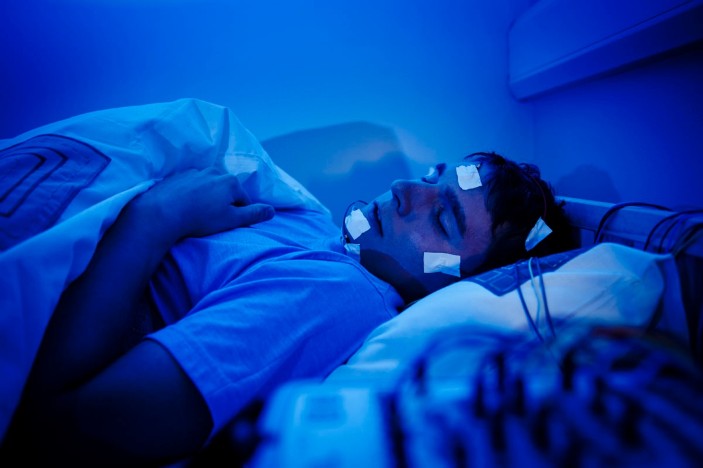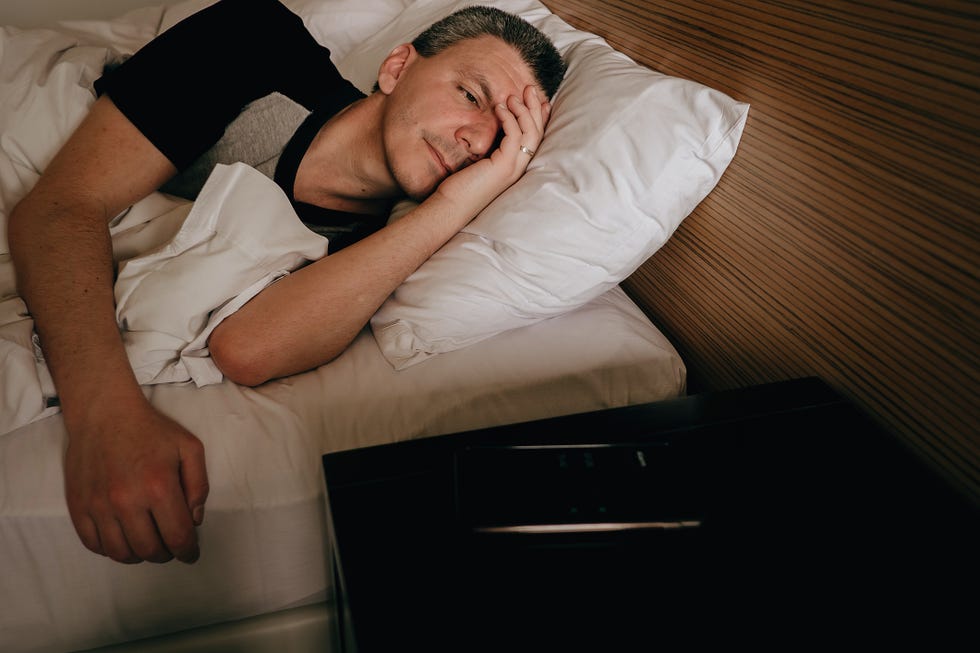Cognitive Behavioral Therapy for Insomnia (CBT-I) - Proven Methods
Cognitive Behavioral Therapy for Insomnia (CBT-I) - Proven Methods
Blog Article
Reliable Treatment Solutions for Taking Care Of Rest Disorders and Enhancing Relaxed Sleep
In the world of healthcare, the management of sleep conditions and the quest for peaceful rest are essential elements of overall wellness. As we browse the detailed landscape of sleep disorders and seek to improve our rest experience, a deeper understanding of these therapy options might hold the trick to opening a more rejuvenating and satisfying corrective journey.
Cognitive Behavior Modification for Sleeplessness (CBT-I)
Cognitive Behavior Modification for Insomnia (CBT-I) is an organized, evidence-based therapy approach that concentrates on dealing with the underlying aspects adding to rest disturbances. This kind of therapy intends to change habits and ideas that aggravate insomnia, ultimately promoting healthy sleep patterns. CBT-I commonly includes several vital parts, consisting of cognitive treatment, rest limitation, stimulation control, and rest health education.
Cognitive treatment aids people identify and change negative idea patterns and beliefs regarding sleep that may be preventing their ability to drop or remain asleep. Sleep restriction involves limiting the amount of time invested in bed to match the person's actual sleep period, therefore increasing sleep performance (insomnia solutions). Stimulus control techniques aid develop a solid organization in between the bed and rest by motivating people to head to bed only when drowsy and to prevent taking part in promoting activities in bed
Moreover, sleep hygiene education concentrates on establishing healthy rest practices, such as preserving a regular sleep routine, producing a relaxing going to bed regimen, and enhancing the sleep environment. By resolving these aspects adequately, CBT-I supplies an efficient non-pharmacological intervention for handling sleeplessness and improving overall rest high quality.
Rest Health Practices
Having established the foundation of cognitive restructuring and behavior adjustments in attending to sleeplessness through Cognitive Behavioral Therapy for Sleeplessness (CBT-I), the focus currently changes in the direction of checking out essential Sleep Hygiene Practices for preserving optimum sleep top quality and overall wellness.
Rest hygiene practices include an array of practices and ecological variables that can considerably impact one's capability to drop off to sleep and stay asleep throughout the night. Regular rest and wake times, creating a relaxing bedtime regimen, and maximizing the rest environment by keeping it dark, peaceful, and cool are critical components of good sleep health. Limiting exposure to screens before going to bed, staying clear of energizers like caffeine close to bedtime, and engaging in regular physical activity throughout the day can also promote better rest high quality.
Furthermore, practicing relaxation methods such as deep breathing workouts or meditation before bed can help soothe the mind and prepare the body for sleep. By integrating these rest hygiene techniques right into one's day-to-day routine, people can establish a healthy sleep pattern that supports relaxed sleep and total well-being.
Relaxation Strategies and Mindfulness
Applying relaxation methods and mindfulness practices can play an essential role in promoting a feeling of calmness and promoting high quality sleep. Additionally, led imagery can assist carry people to a peaceful area in their minds, assisting in stress and anxiety reduction and enhancing rest top quality.
By incorporating these practices right into a bedtime routine, people can indicate to their bodies that it is time to relax and prepare for rest. Generally, incorporating leisure strategies and mindfulness practices can significantly add to handling sleep disorders and enhancing total rest top quality.

Medicine Options for Rest Disorders
After discovering relaxation strategies and mindfulness methods as non-pharmacological treatments for boosting sleep high quality, it is important to take into consideration medication options for people with sleep problems. In instances where way of living changes and treatment do not provide adequate relief, medicine can be a valuable device in managing rest disturbances.
Generally suggested medicines for sleep disorders consist of benzodiazepines, non-benzodiazepine hypnotics, antidepressants, and melatonin receptor agonists. Benzodiazepines, such as diazepam, are sedatives that can assist induce sleep, but they are commonly suggested for short-term use because of the threat of reliance. Non-benzodiazepine hypnotics like zolpidem are also utilized to deal with insomnia and have a lower threat of dependancy compared to benzodiazepines. Antidepressants, such as trazodone, can be helpful for people with co-occurring clinical depression and rest disruptions. Melatonin receptor agonists, like ramelteon, target the body's all-natural sleep-wake cycle and can be handy for controling rest patterns.
It is essential for people to seek advice from a healthcare service provider to identify the most ideal medication alternative based on their specific rest disorder and case history.
Light Treatment for Circadian Rhythm Law
Light treatment, likewise referred to as phototherapy, is a non-invasive treatment method used to manage body clocks and boost sleep-wake cycles. This therapy involves exposure to intense light that simulates natural sunshine, which assists to reset the body's biological rhythm. By subjecting people to details wavelengths of light, commonly in the early morning or night depending on the wanted effect, light therapy can properly readjust the circadian rhythm to advertise wakefulness throughout the day and enhance restful sleep in the evening.
Study has shown that light treatment can be particularly advantageous for individuals with body clock conditions, such as delayed rest phase syndrome or jet lag. It can likewise be handy for those experiencing seasonal affective disorder (SAD), a sort of anxiety that typically occurs during the natural insomnia remedies winter season when all-natural light direct exposure is decreased. Light therapy is generally well-tolerated and can be made use of in conjunction with various other therapy methods for rest conditions to maximize end results and boost overall rest high quality.
Verdict
In conclusion, reliable therapy solutions for handling rest conditions and enhancing relaxed sleep consist of Cognitive Behavior modification for Sleep Problems (CBT-I), sleep hygiene methods, relaxation methods and mindfulness, medicine options, and light therapy for circadian rhythm regulation. These techniques can help individuals improve their rest top quality and overall wellness. It is very important to consult with a healthcare company to figure out the most suitable strategy for resolving sleep problems.
As we browse the detailed landscape of rest conditions and seek to improve our rest experience, a deeper understanding of these therapy solutions might hold the trick to opening an extra relaxing and fulfilling corrective journey.
Rest constraint includes restricting the quantity of time invested in bed to match the person's real rest duration, thus boosting sleep effectiveness. Regular rest and wake times, creating a relaxing bedtime regimen, and enhancing the sleep setting by maintaining it dark, silent, and cool are vital components of excellent sleep hygiene. Light treatment is typically well-tolerated and can be utilized in conjunction with various other treatment approaches for sleep conditions to maximize end results and improve general rest high quality.

Report this page